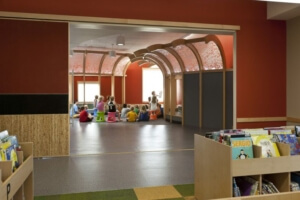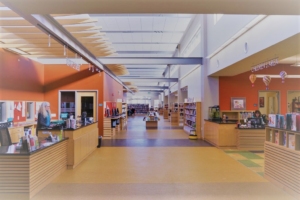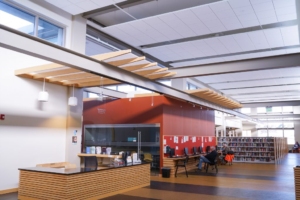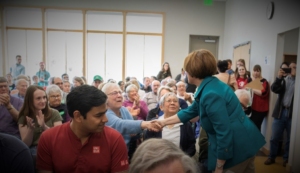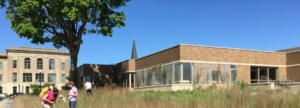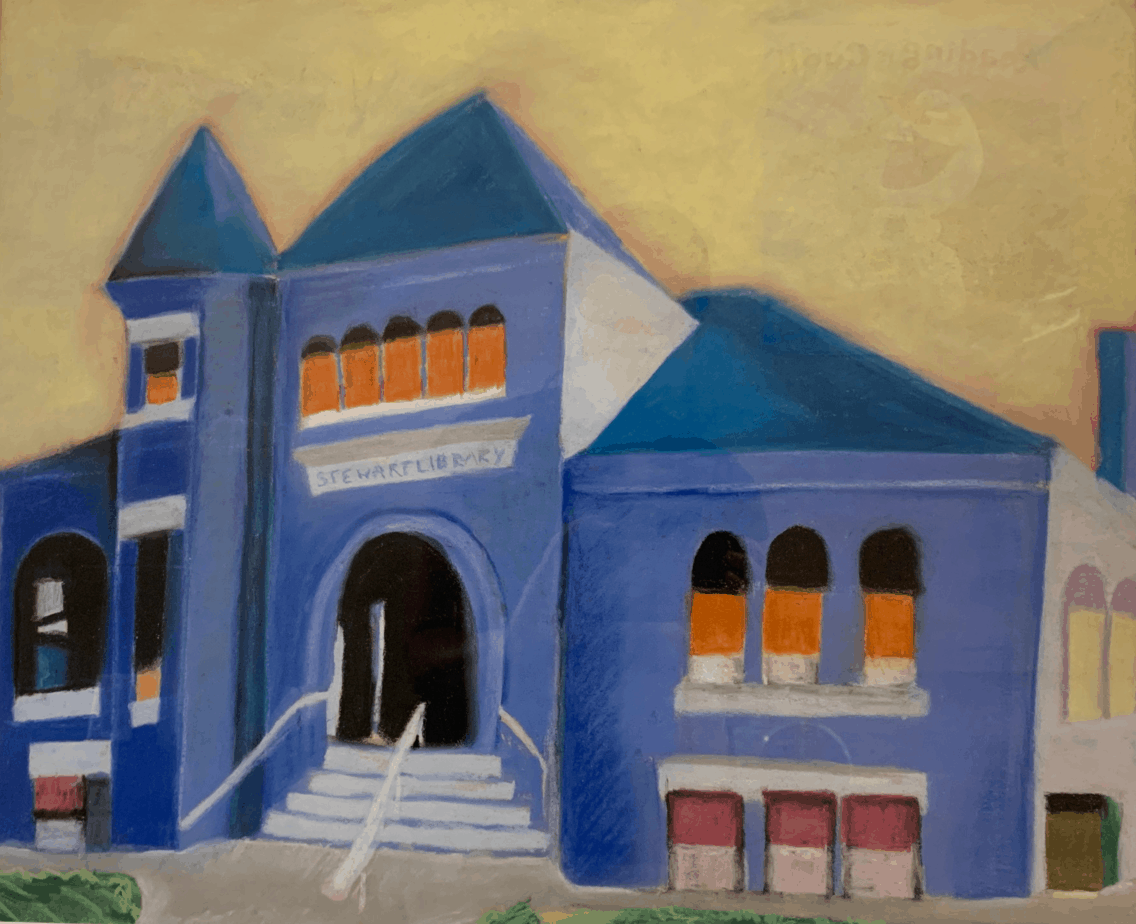
Stewart Library
Mollie Osgood, 2009
chalk pastels on paper
Mollie Osgood worked at Stewart Library from 2000 to 2004. The drawing of the original town library was inspired by the artist’s love of the building, staff and patrons.
As an artist, Mollie has explored a variety of artistic forms including painting, collage and quilting. Artistic influences include the work of Van Gogh, Agnes Martin and Mary Cassatt.
Stewart Library was opened in 1902 and the three-story, brick building follows the Romanesque Revival style. It is located at 926 Broad Street. The building now houses the Grinnell Area Arts Council.
Prairie Song
Michele Gutlove, 2018
sculpture in two parts, handmade glass and light
Gutlove trained as an architect and is now a glass artist with a passion for the interaction of glass and light. She uses an optical phenomena called “thin film interference”. It results when two light waves traveling in the same direction are superimposed. The light striking the surface reflects not one but two waves that return to the viewer’s eye.
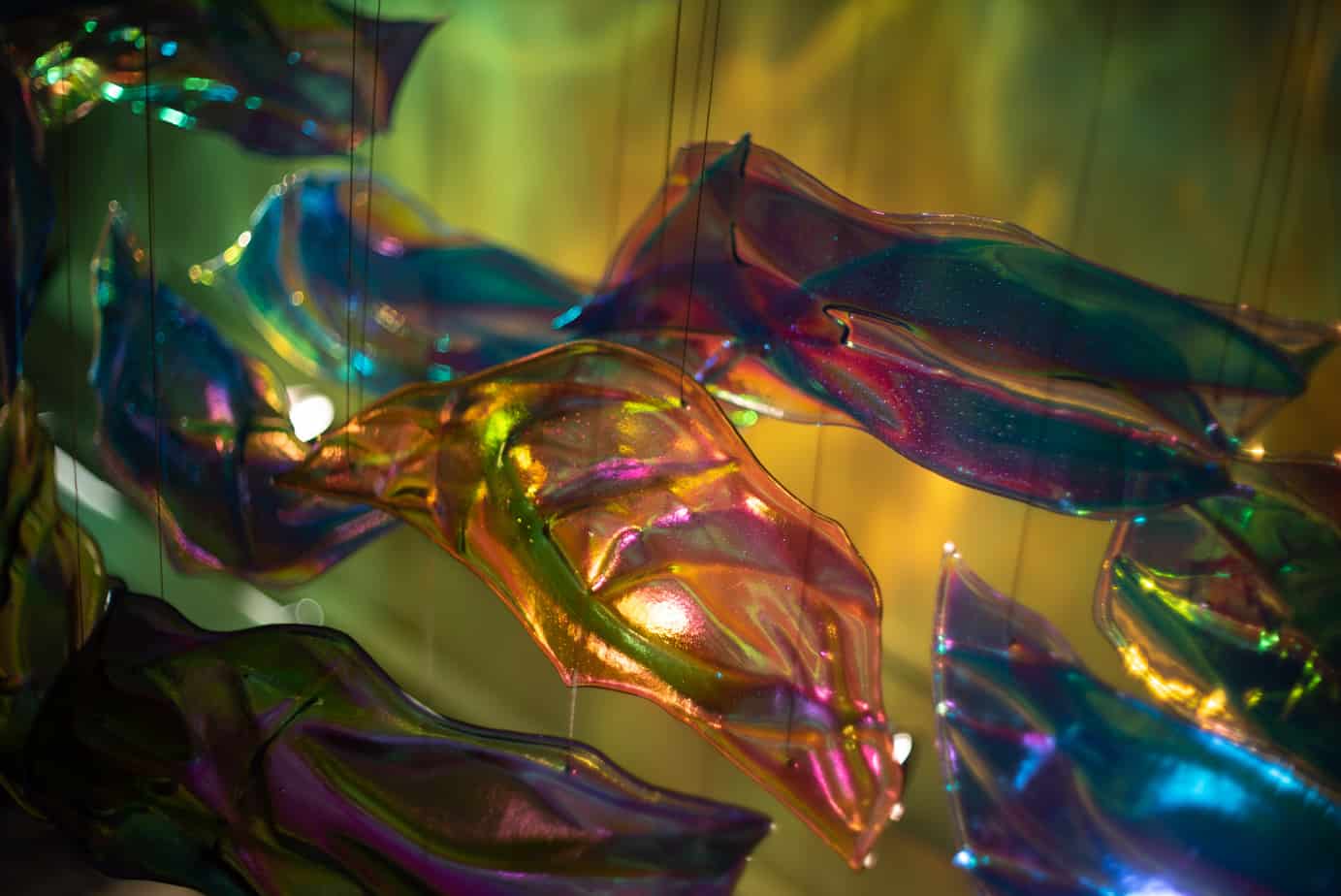
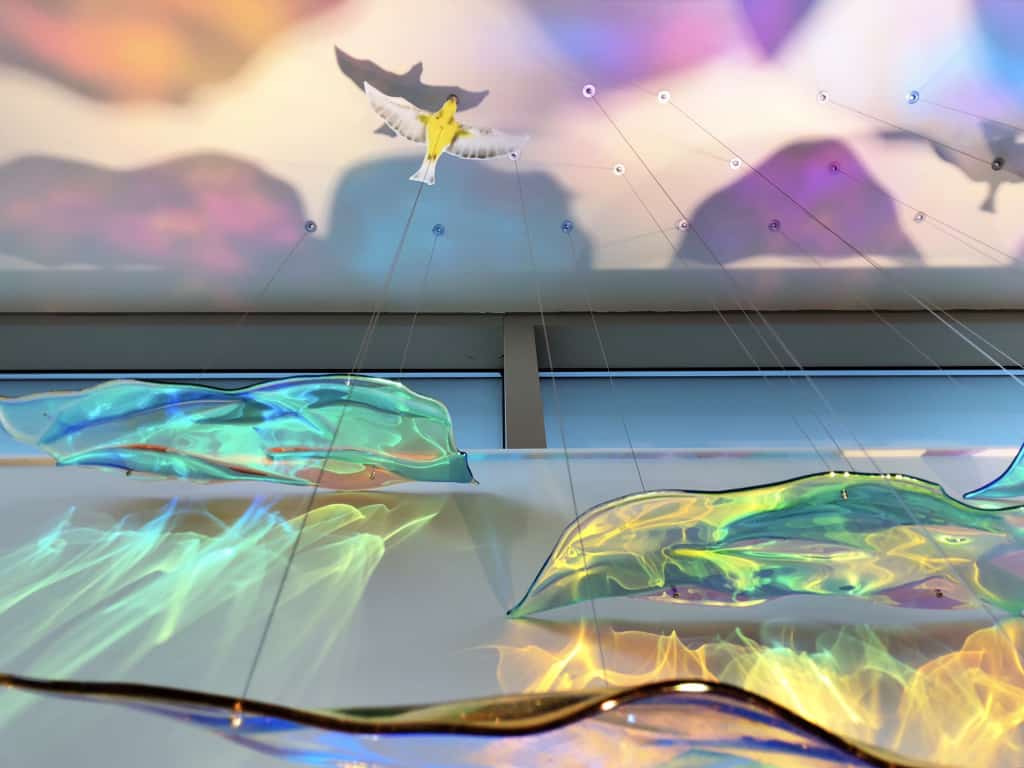
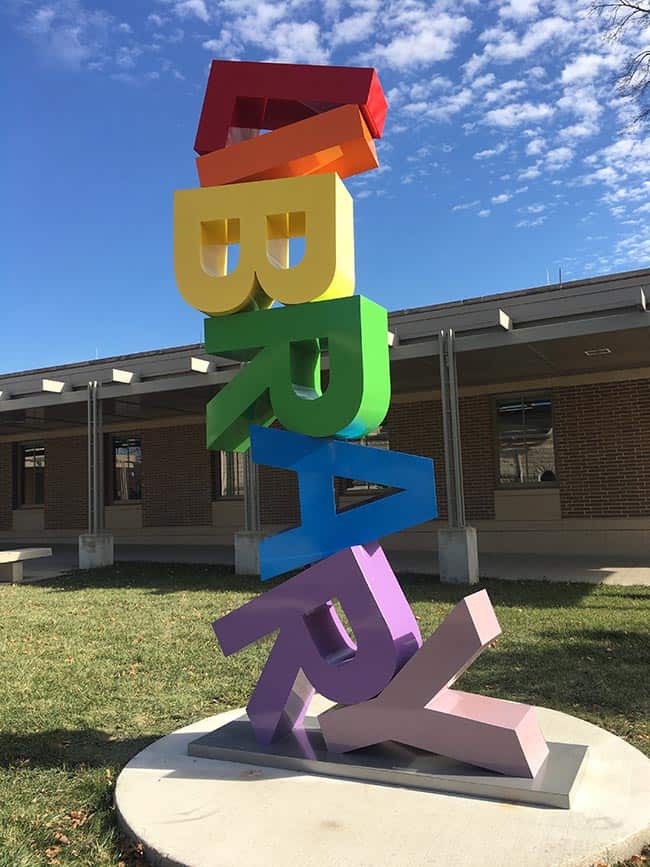
Stacked Library
Ryan McGuire, 2017
powder coated aluminum
McGuire is a graphic artist, photographer, and web designer. McGuire worked on the design team with ASI Signage to create an eye-catching functional art sculpture to make the library easier to find.
You can find several of McGuire’s other works in town such as the fried egg hanging on the side of Hotel Grinnell, a mural of a tooth brushing dinosaur in the alley behind Village Decorating Studio and the mighty balloon located outside the Spaulding building.
Strip Cropping II
Thomas Agran, 2014
oil on linen
Thomas Agran graduated from Grinnell College with a degree in Studio Art. He resides in Iowa City and serves as the Director of Public Art for the Iowa City Downtown District. His art work is influenced by the midwestern landscape and how it is transformed through agriculture as well as the political, social, and environmental consequences of that change.
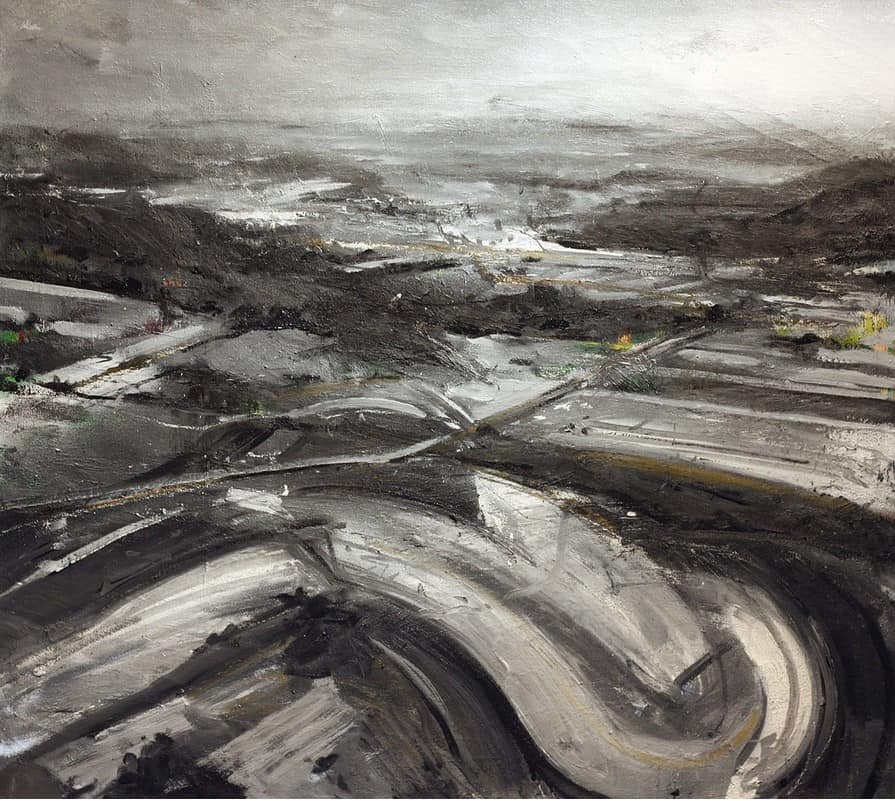
Knowing the darker side of the bucolic and appreciating the aesthetic side of the industrial creates paradigms for finding the landscape’s hidden burdens and unexpected attractions.
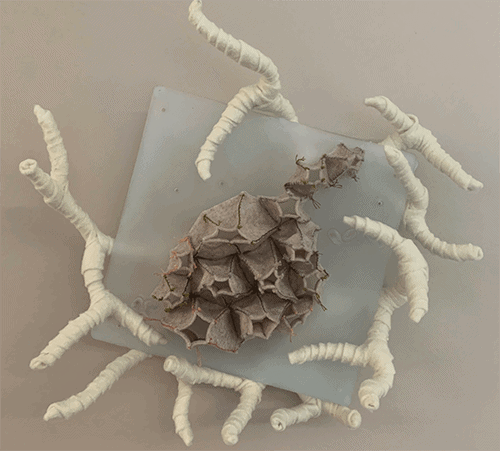
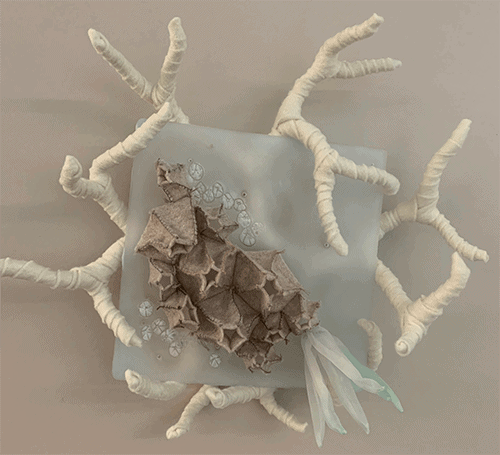
Tidepools I & II
Sayuri Sasaki Hemann, 2015
plexiglass, fiber and hand stitching
An Iowa City based artist, Hemann is a textile artist who creates 3D underwater worlds using fabrics and felts. Barnacles are just one of the creatures inhabiting the magical installations that the artist has created. Jellyfish, corals, anemone and seaweed are all a part of her work. You can see her Tidepools installation at the Portland International Airport which is dedicated to the survivors of the 2011 earthquake and tsunami in Japan.
Home of J.B. Grinnell
Mary E. Stoops, 1933
oil painting
Mary E. Milner Stoops was born in Charlottetown, Canada in 1856. She lived in Grinnell for 41 years at 1033 Park St with her husband, J.D. Stoops, a professor in the Philosophy Department at Grinnell College. She passed away at the age of 89 and her obituary recounts that “she possessed a notable artistic talent and enjoyed painting pictures as gifts to her friends”.
J.B. Grinnell founded the town in 1854 with the help of Homer Hamlin, Henry Hamilton and Dr. Thomas Holyoke. Grinnell was a staunch abolitionist and a “conductor” on the Underground Railroad; his cellar at 814 Park St. was a registered stop.
Grinnell was also responsible for the founding of “Grinnell University” which would join with Iowa College, originally in Davenport, to became Grinnell College. The Trustees of Iowa College were convinced by J.B. Grinnell to relocate from Davenport and adopt the name of the town.
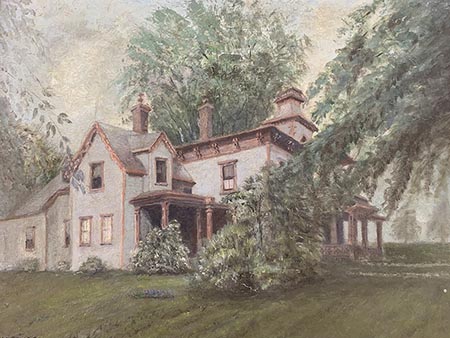
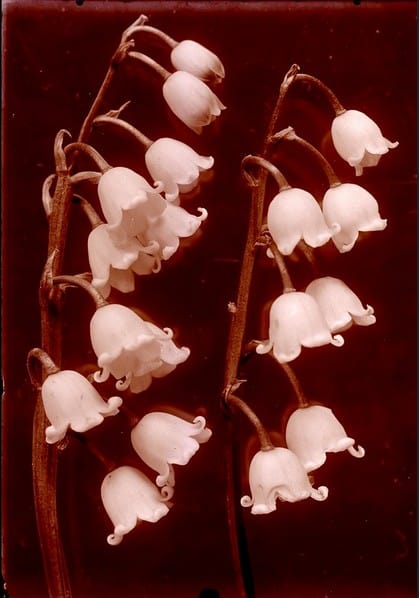
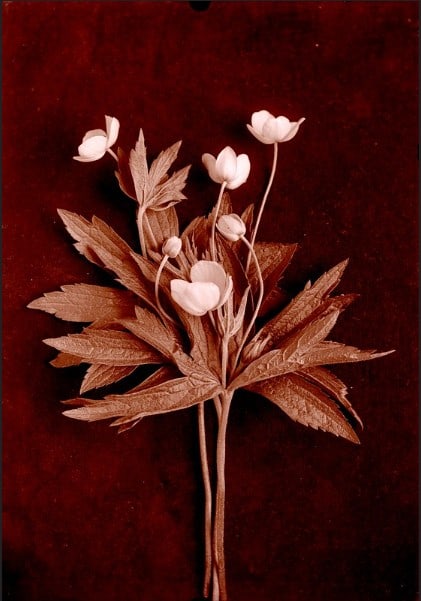
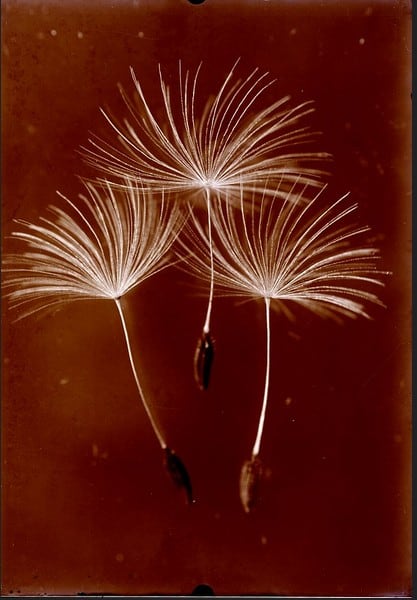
Botanical Glass Plate Negatives
Cornelia Clarke (1884-1936)
glass plate negatives
Clarke was a premier nature photographer, well-known for her exquisite photographs of plants, insects, and animals, which were published both nationally and internationally. A Grinnell native and volunteer at the Grinnell College herbarium she willed about 3,000 plate-glass negatives to Henry Conard, a professor of botany at Grinnell College.
The negatives were found in the early 2000s when the University of Iowa closed its botany department. Conard had taught at the school and left them there when he retired in the 1950s.
Thanks to a Grinnell College micro-grant, the Grinnell Historical Musuem scanned about 100 of the negatives. You can view them on a Flickr site hosted by the State Historical Research Center of Iowa.
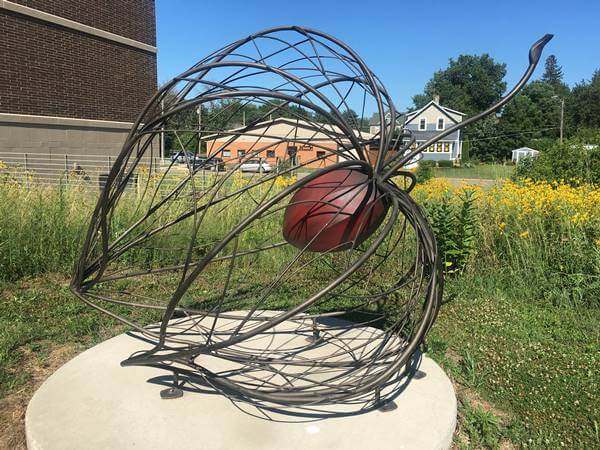
Seed of Knowledge
Stephanie Sailer, 2016
metal rods with painted metal
Sailer grew up on a small farm in Iowa where she developed a strong interest in organic forms. In particular, seed pods which are fundamental to botanical life. The sculpture is inspired by the lantern seed which begins life only after the pod disintegrates.
As humans, we constantly create, destroy, and reinvent ourselves. These influential experiences transform us into completely new creatures. My sculptures serve as visual metaphors for this psychological process, physical manifestations of my emotional mind.
Architecture of Drake Community Library
The firm responsible for the building is Meyer, Scherer, & Rockcastle of Minneapolis, Minnesota.

